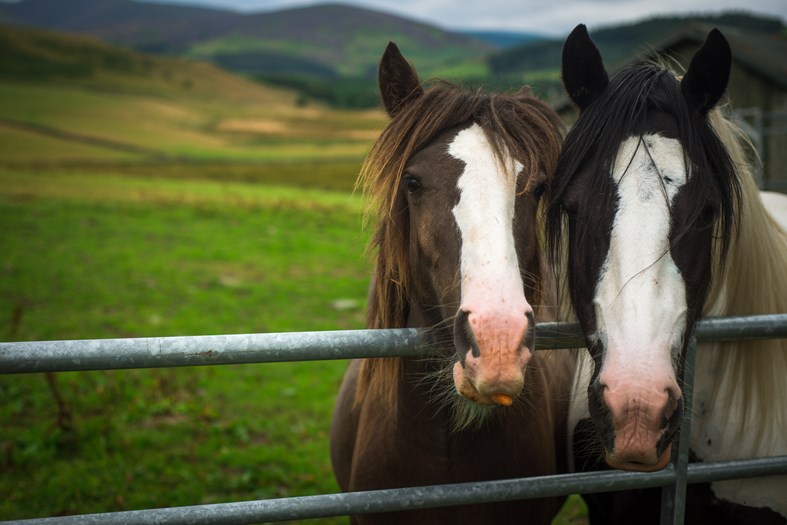National Day of the Horse Blog

Horses and ponies have - and continue to have, an instrumental role in Scotland
Today marks the National Day of the Horse and provides an opportunity to reflect on how horses have shaped my own life and how we use scientific research to continue to learn more about them.
Throughout history, horses and ponies have played an instrumental role in helping shape the world we live in, and while in Scotland today their role has changed drastically, they remain an important part of our rural landscape and contributor to our rural economy.
On a more personal level, horses have always played an important role in my own life. Beginning in early childhood, I started out as many did, learning to ride on a Shetland pony which had a heart of gold but also a great knack of testing your ‘stickability’! Weekends and any spare time through my school and university years were spent riding and competing before an opportunity arose to merge my passion with further postgraduate studies.
Subsequently, I have been lucky enough to be involved in equine nutrition-related research that allows me to continue to learn and pass on my knowledge about these noble creatures.
As with anything, trends have come and gone in the years (decades!) since my own Pony Club days, but the importance of good nutrition and of feeding adequate forage has remained constant. While the principal forage source is undoubtedly grass, for many horses and ponies the winter months necessitate supplementing with preserved forages such as hay and haylage to meet daily forage requirements.
However, unlike manufactured feedstuffs, no two batches of hay or haylage will be the same in terms of their nutritional composition and undertaking a forage analysis is the only way to determine this.
A recent survey undertaken by SRUC researchers demonstrated that doing a forage analysis is an uncommon practice for many owners. Interestingly however, those owners who were currently managing their ponies’ nutrition for metabolic disease-related conditions were more likely to have undertaken a forage analysis compared to those who were not. It is likely that for these owners who are trying to minimise the intake of water-soluble carbohydrates (WSC) in their ponies’ diet, a forage analysis provides a valuable guide to inform their forage choices.
Numerous factors including grass species, stage of maturity when cut, and environmental conditions, will all play a role in determining the final nutritional value of a preserved forage. An SRUC research project is currently investigating the impact of season, botanical species and fertilisation on nutritional composition of pasture. Results from this study will provide crucial insights into the complex associations between these factors that will have relevance to those involved in managing pasture for horses - so watch this space for outputs from this project.
Pippa Morrison, Senior Lecturer
Posted by Pippa Morrison on 13/12/2023
